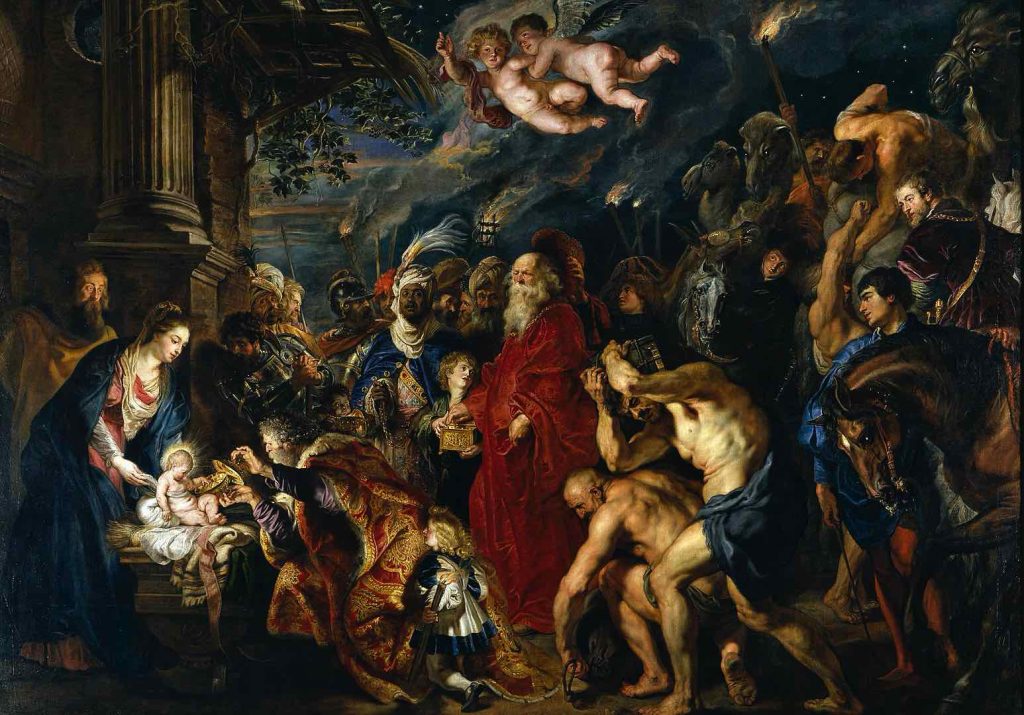
Matthew’s story now shifts back to the Magi, who had traveled from their homeland in the east, following the star. On arriving in Jerusalem they stopped and asked Herod – who was king of the Jews by Roman decree – where the new king would be born. After he consulted others, Herod told them, expecting them to later return and report what they’d found. Armed with the missing piece of information (that Jesus would be born in Bethlehem), they left to narrow down their search.
“After they had heard the king, they went on their way, and the star they had seen in the east went ahead of them until it stopped over the place where the child was. When they saw the star, they were overjoyed.”
Understanding the background to the above verse, it occurs to the reader that the arriving Magi must earlier have come to a point or place where they either couldn’t discern exactly when they were directly under the star, or where they couldn’t find it in the sky any longer at all. Why else would they have even thought to ask Herod for directions? But after that interaction they go back on their way, and the star again appears. This, more than any other fact, leads one to conclude that the star was not a convergence of planets (as some have suggested) or some other kind of natural but infrequent phenomenon. It was a supernatural sign, appearing, disappearing and moving according to the will of God, entirely for His purposes.
Those purposes included motivating the Magi in the first place, leading them to Herod to ask a heart-proving question, overwhelming them with joy and guiding them to the exact place Jesus was. That is a lot to ask of a simple star. But it is not too much to ask of God’s personal leading.
God is always faithful to lead those who want to see Him to Himself. Along the way, He will use all manner of circumstance and signs – be a dream or an overheard phrase or a bizarre set of coincidences or even a supernatural star in the sky – to do so. And all along the way, He uses the faith of those He is leading – however small and incomplete it may be – to accomplish things for His glory.
Some of those things are wonderful and elusive – like looking up and seeing the star or hearing/noticing something in His Word we never noticed before. Some are confusing – like suddenly not seeing the star, and some – like speaking to a foreign king – are fraught with danger. All of them require action on the part of the believer, be it starting a journey or asking an authority for direction. But this we have to know: whenever we ask for God’s leading and then take action as He leads, it always ends in our joy, for such action always lead to worship of Him.
Many say they can’t get God’s guidance, when they really mean they wish He would show them an easier way.
Winkie Pratney
APPLICATION: Thankfulness
How has God lead you in the past? How do you expect Him to lead you today? Thank Him for the many ways He does lead.








